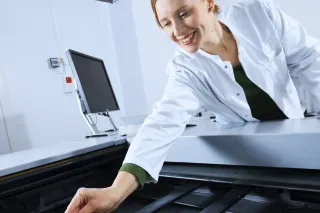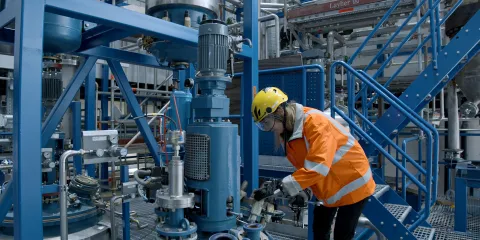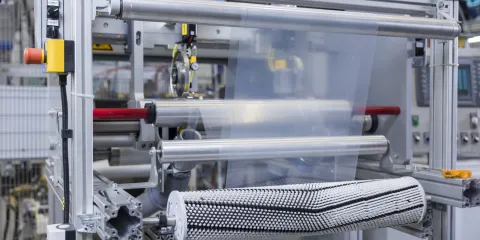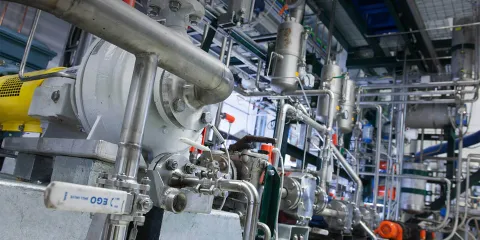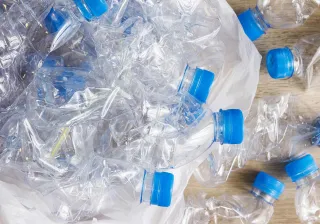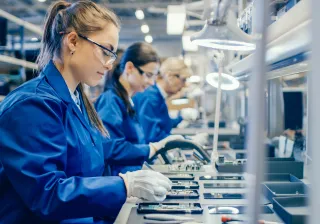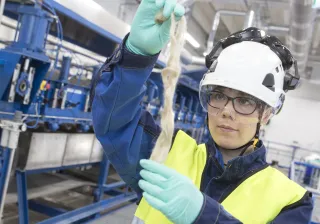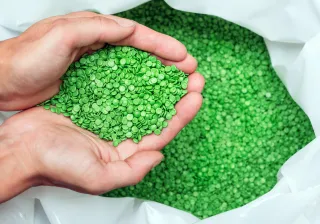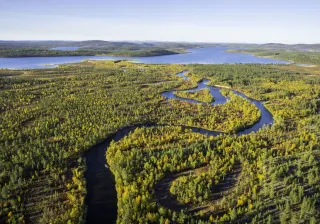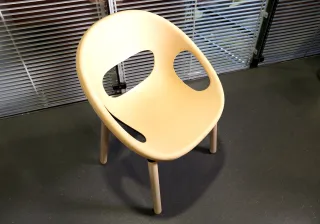Plastic circular economy

With VTT’s expertise, your business and products can be a part of the circular economy of plastics. Its emergence is necessary to mitigate the harmful effects that plastics can have on our environment.
Reap the benefits of the circular economy of plastics
Get help in designing plastic products and packages that fit the circular economy.
Prepare for tightening regulation by increasing the sustainability of your products.
Find better ways to recycle using state-of-the-art mechanical and thermochemical recycling.

What is the circular economy of plastics?
The circular economy of plastics is a system that aims to continuously circulate plastic materials and design out waste. This can be achieved by implementing different circular strategies. They include reducing unnecessary plastics, shifting to reuse systems, recycling plastic waste via different technologies, and introducing alternatives to virgin fossil-based materials like recyclates, bio-based plastics, and carbon capture and utilisation-based plastics.
Plastic waste is a systemic problem. No single actor can solve it. That’s why we need a systemic solution that brings together businesses, consumers and the public sector as well as regulators. At VTT, we can bring different actors together to find ways to innovate, develop, transition to and promote the circular economy of plastics.

Why do we need the circular economy of plastics?
Extraction, production and conversion of plastics as well as incineration all cause greenhouse gas emissions, which intensify climate change. By implementing a circular economy of plastics, different negative environmental impacts can be avoided or mitigated.
For example, with recycling where plastic products are broken down into materials, we can avoid incineration and landfilling, but further, reduce the dependency on fossil-based resources. With reuse, where the product is circulated as a product, we can avoid different production steps as well.
There is no one solution that will fix all the challenges – we need a combination of different circular economy strategies. Especially for recycling, we need complimentary approaches to solve the issue of being able to recycle a wide range of different and ever-evolving plastic products.
Circular strategies that precede recycling

To support product reuse and re-manufacturing business models, we can help optimise material choices for plastic products like packaging. Safety and durability are key when shifting from a single-use and linear economy to a reuse and circular economy.
VTT provides expertise for developing and designing durable materials fit for multiple reuse cycles, repair, refurbishment, remanufacture and repurpose. We can also improve end-of-life recyclability when the product can no longer be used or fixed to be used in its original or alternative applications.
Solutions for a circular economy of plastics
As extended producer responsibility (EPR) schemes are being implemented, manufacturers will be increasingly accountable for the circulation and recycling of their products.
To make the transition to increased accountability economically viable, we need to take the circular economy into consideration when designing products, develop bio-based plastics and high added-value recyclate-based products, find new ways to reuse existing plastics and improve recycling.
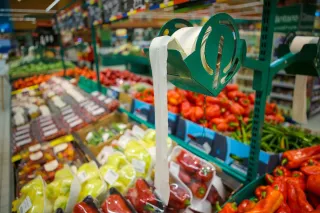
Ecodesign of plastic packages and products
To reach a circular economy of plastics, we need to begin at the design table.
- How much plastic is needed in the product or the packaging in the first place?
- How reusable or recyclable is the product?
- Does it contain complex material components, additives or layers that make reuse and recycling impossible?
- If so, how can we reduce their use?
- Could the plastic be sourced from recycled plastic or bio-based plastic?
- What are the boundaries that legislation sets for different circular options?
At VTT, we have deep expertise in material and product development and design that is carried out according to the strategies of the circular economy. We can help you develop a more sustainable product that improves your business results. We can also develop and implement circular economy business models.
We have a long track record of developing high-performance, safe and durable materials based on alternative feedstocks like recyclates or bio-based plastics. As regulation brings new mandates for utilising recycled content in different products, VTT has experience in replacing conventional plastics with bio-based plastics and materials from second and third-generation feedstock.
Our service VTT PlasticsCompass helps you fulfil your strategy for sustainable material development. With VTT PlasticsCompass, you navigate efficiently through the entire innovation process from selection to polymer material development and validation.
Read our whitepaper about sustainable packaging
Our whitepaper Sustainable alternatives – in packaging and beyond covers for example how to speed up replacing fossil-based plastics with sustainable alternatives, what kind of results other companies have achieved with piloting, which regulatory changes are driving the transition and how to choose the right piloting house.
Recycling and designing plastics that are fit for recycling
There are hundreds of different plastic formulations used in thousands of different plastic components, products and applications. Examples include packaging, toys, medical applications, cars, pipes, electrical equipment and devices, household appliances – the list goes on.
Plastics are formed from different polymers and a range of diverse additives. As plastics have been used for decades, the plastics that are discarded today can contain traces and levels of substances banned a long time ago.
The multitude of material types and combinations used in different applications as well as potential hazardous content makes recycling plastic waste very complex.

The operational environment is getting more challenging with tightening regulation. EPR schemes and higher collection and recycling targets for different plastic products are set. A Europe-wide initiative to circulate 10 million tonnes of plastic recyclates to the markets by 2025 still requires immense action.
Probably the most familiar example of plastic product recycling is plastic drink bottles that are separately collected, washed, and recycled back into food-contact use. Technical plastics from, for example, end-of-life vehicles and waste electronics and electrical equipment are also key material streams to circulate high-performing plastics. For different plastics and products, we need different recycling approaches.
Mechanical recycling of plastics
VTT has developed a state-of-the-art mechanical recycling line, VAREX, for smart upgrading of plastic waste streams.
VAREX utilises in-line viscosity measurements for real-time additive dosing. With the pilot-scale recycling line, VAREX is designed to monitor and adjust the melt flow properties to characterize and to consistently improve the quality, which results in high-quality outputs. We have been utilising VAREX efficiently for different product-sectors like packaging, WEEE, ELV and CDW. We have experience in optimising the quality as well as additives for wanted product properties for conventional polyolefins and technical plastics alike.
We have also developed processing equipment that enables the efficient compacting and extrusion of challenging waste streams. The equipment is suitable especially for fluffy and large pieces of plastic waste, like expanded polystyrene or packaging. This will help in reprocessing post-industrial waste but is also an efficient pre-treatment for further recycling techniques like feed-in for pyrolysis.
Read more about our sustainable polymer material development and piloting capabilities.
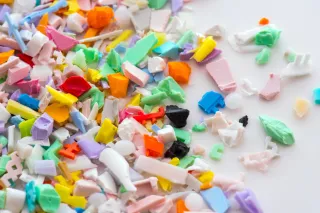
Thermochemical recycling of plastics: pyrolysis and gasification
Mechanical recycling should be favoured where possible as it has a much lower carbon footprint. However, not all plastic waste cannot be or should be recycled mechanically. In these cases, the plastics can be recycled via chemical and thermochemical means.
VTT has broad competencies in the field of pyrolysis and gasification, which enables the transformation of organic material into valuable chemicals. We have a wide range of equipment from lab to bench to pilot scale for state-of-the-art development of pyrolysis and gasification of plastic waste.
Related infrastructure
Circular economy experts at your disposal
Our expertise in plastics research also encompasses versatile plastic processing and recycling facilities where you can develop, analyse, produce and pilot new solutions. Our facilities like the Polymer Pilot facility, VAREX mechanical recycling line and Bioruukki piloting centre enable research and innovation from laboratory to pilot scale.
In our labs and pilot plants, customers of any size can develop and scale up innovations and processes.
Get in touch and we’ll help you become a leading player in the circular economy of plastics.
